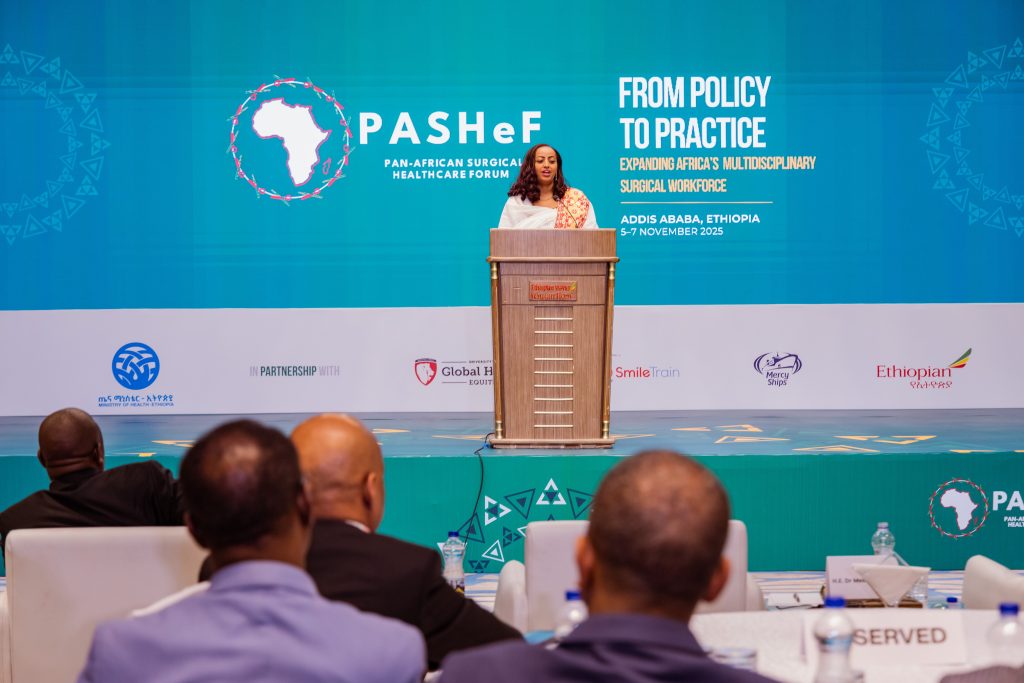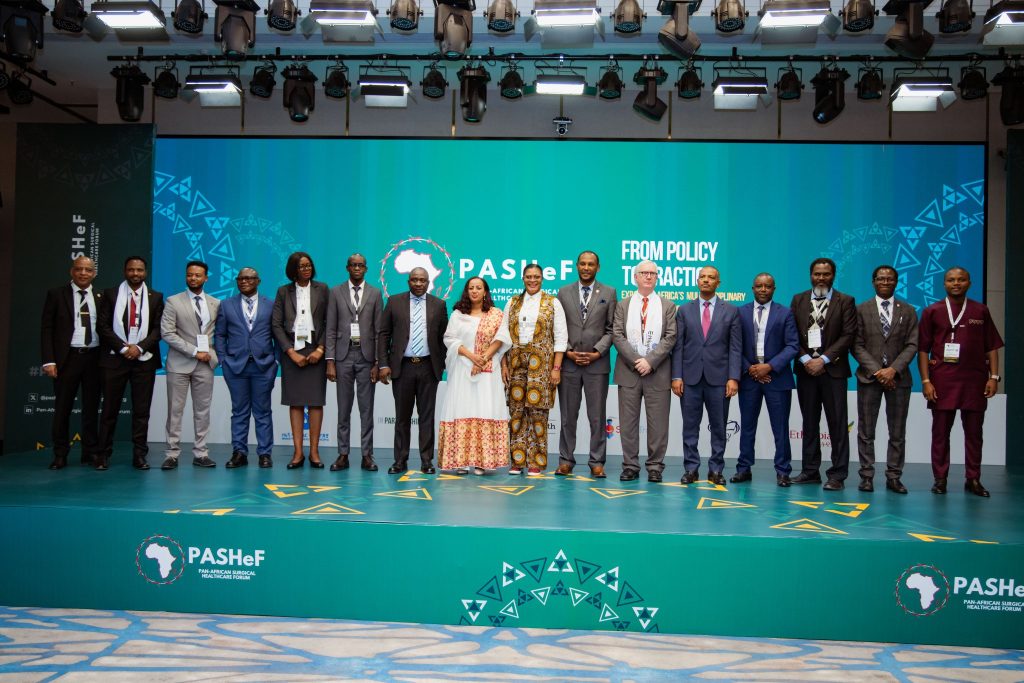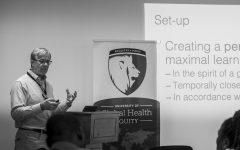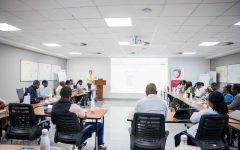From Policy to Practice: What PASHeF 2025 Sets in Motion
November 20, 2025 2025-11-20 10:14From Policy to Practice: What PASHeF 2025 Sets in Motion
In sub-Saharan Africa, an overwhelming 93% of people cannot access essential surgical and anaesthesia care when they need it.
The Pan-African Surgical Healthcare Forum (PASHeF) is an African Member-State-led platform. It brings ministries, surgical colleges, partners, and frontline teams together to fix bottlenecks in training, recognition, financing, and data, so services move closer to patients. The third forum took place in Addis Ababa, hosted by Ethiopia’s Ministry of Health, with core partners including the University of Global Health Equity (UGHE), Smile Train and Mercy Ships.
This year’s focus was simple and demanding move “from policy to practice” by expanding Africa’s multidisciplinary surgical workforce and financing it sustainably. That frame ran through the agenda, country progress reports, financing exemplars, diaspora engagement, and digital tools to teach and mentor across borders.
The forum did more than talk. Member States adopted the Resolution on Policy and Governance: Integration of Surgical Healthcare into the African Union Health Agenda. In plain terms, it moves surgery from the margins into AU and national plans; recognises PASHeF as the platform to coordinate, monitor and report progress; and situates the work within the AU and Africa CDC architecture. The resolution also links surgical care to health security, equity and the SDGs.
Money and workforce, making change real
Financing cut through every session. Countries explored strategies to move beyond inconsistent budgets and unpredictable aid, focusing instead on sustainable solutions. These included balanced domestic funding, insurance reforms, strategic purchasing, and public-private partnerships designed to safeguard the public interest. As Ethiopia’s Health Minister, Her Excellency Dr. Mekdes Daba, argued, “surgery is not a peripheral service… it is an economic investment.”

Workforce was the centre of gravity. Delegates focused on training that matches disease burden, fair deployment and retention, cross-border recognition, and the data systems to track outcomes. Day-by-day programming reflected that focus, with sessions on peri-operative strategies, national plans, and skills pipelines for surgeons, anaesthetists, obstetric providers and peri-operative nurses.
Digital and diaspora, used as systems, not add-ons
Digital learning and remote guidance were treated as infrastructure. Colleges and hubs discussed e-learning at scale; platforms demonstrated “intelligent OR” tele-mentoring; and networks showed how scarce experts can support multiple theatres across borders. The diaspora track moved from goodwill to design: formal “diaspora desks,” short-term service with clear vetting, and tele-mentoring embedded in national plans.
PASHeF 2025 Pivotal Voices Spotlights

“If you don’t plan, you’re planning for failure… These are African issues. The solution should be African,” said PASHeF Chair Prof. Abebe Bekele, noting that countries engaged have grown from 33 in 2023 to 45 this year, and that more are developing National Surgical, Obstetric and Anaesthesia Plans with peer support.
“Surgery is not a luxury; it is an economic investment essential to Universal Health Coverage,” said H.E Dr. Mekdes Daba, Ethiopia’s Minister of Health urging government-led priorities and smarter partnerships.
“PASHeF continues to lead the way, turning policy into practice and building Africa’s next generation of surgical leaders,” added Smile Train’s Vice President for Africa, Mrs. Nkeiruka Obi.
Dr. Walt Johnson, International Advocacy Manager of Mercy Ships, called for united action saying, “When we unite our skills and perspectives, we can achieve remarkable outcomes… Together, we will push boundaries and reach heights that inspire everyone involved.”
Who is in the tent?
The forum is growing because ownership is local. African Member States own the movement, Ministers of Health provide governance, UGHE anchors the PASHeF secretariat; Smile Train, Mercy Ships and other partners support implementation. Ethiopia’s Ministry of Health hosted the 2025 forum after Rwanda convened the first two. The model is intentional: countries share what works, align on standards and data, and leave with tasks, not just talking points.
Next
With the resolution in hand, the test is straightforward and demanding: what changes for patients by next year? Diagnose with data, decide publicly, finance effective solutions, train and retain skilled teams, and scale initiatives that transcend borders.








